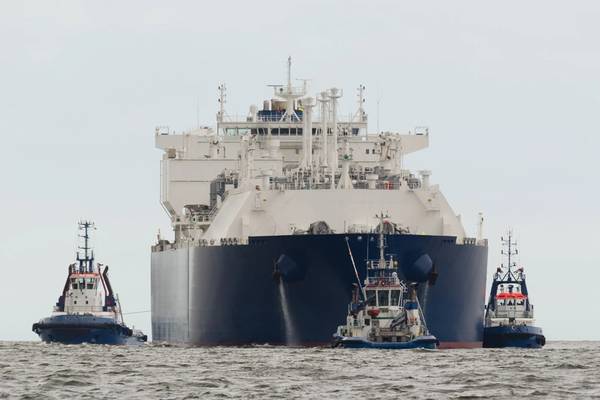US LNG Exporters Expected to Escape Brunt of Hurricane Francine
Sept 12, 2024

© Wojciech Wrzesień / Adobe Stock
U.S. liquefied natural gas export terminals on the Louisiana coast may have escaped the brunt of Hurricane Francine and put off a major test of their ability to withstand a direct storm hit to another day.
Francine was on track on Wednesday to lash south-central Louisiana, east of Cameron Parish that is home to several of the newly operating projects, with 90 mile-per-hour (145 kph) winds. Three of the four largest U.S. LNG export facilities are in Louisiana.
"This hurricane seems to be avoiding the majority of the LNG facility corridor," said Alex Gafford, an energy analyst at researcher East Daley Analytics.
Cheniere Energy's Sabine Pass facility, the U.S. largest LNG export plant, remained in operation on Wednesday with two vessels moored at the Cameron Parish facility. The facility is more than 200 miles west of Francine's projected landfall.
"LNG production at Sabine Pass remains uninterrupted," with Cheniere continuing with its storm preparations, the company said in a statement to Reuters.
Gas flow to Sabine Pass remained high on Wednesday at 4.6 bcf a day but fell to just over 900 million cubic feet or about half of the usual intake at Cameron LNG, LSEG data showed.
Venture Global LNG's Calcasieu Pass LNG plant and Sempra Infrastructure's Cameron LNG facility, also lay west of the storm's path. Cameron LNG had no vessels in its port on Wednesday.
Venture Global's Calcasieu Pass LNG facility located near the Texas border, and the yet to be commissioned, Plaquemines plant near New Orleans, were hunkering down, the company said.
LNG tanker the Qogir was moored at Venture Global's Plaquemines plant. Venture Gator, another tanker that was at the mouth of the Mississippi River, has left and made its way to the safety of the Gulf of Mexico, LSEG ship tracking data showed.
During the first half of 2024, roughly 389 vessels picked up cargoes in Louisiana, including about 218 from Sabine Pass, 75 from Calcasieu Pass, and 96 from Cameron LNG according to U.S. Department of Energy data.
Much of U.S. efforts to build up LNG exports has focused on the Louisiana coast, despite warnings from critics on their exposure to Atlantic hurricanes.
Retired General Russell Honore, the leader of the Louisiana based GreenARMY alliance of civic, community, and environmental groups, said the LNG plants are in high risk areas due to their insufficient buffer zone.
A 10-foot wave surge combined with heavy rainfall could overwhelm plant defenses, he said on Tuesday. The NHC has forecast an up to 10-foot surge for areas in the direct path of Francine.
(Reuters - Reporting by Curtis Williams in Houston and Anushree Mukherjee; editing by Peter Henderson and Nick Zieminski)
Tankers
Energy
LNG
North America
Safety & Security
Liquid Bulk